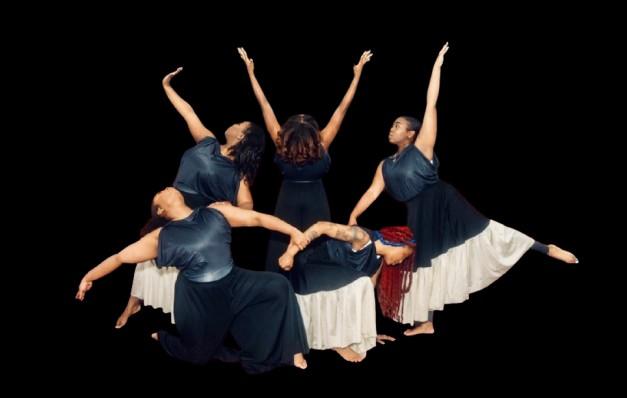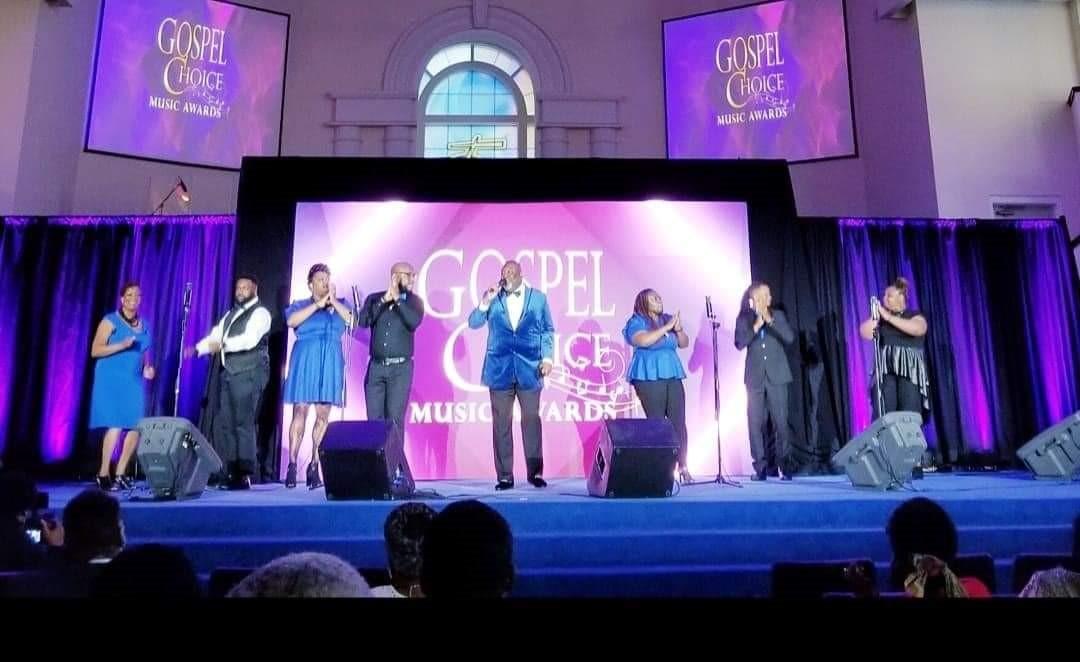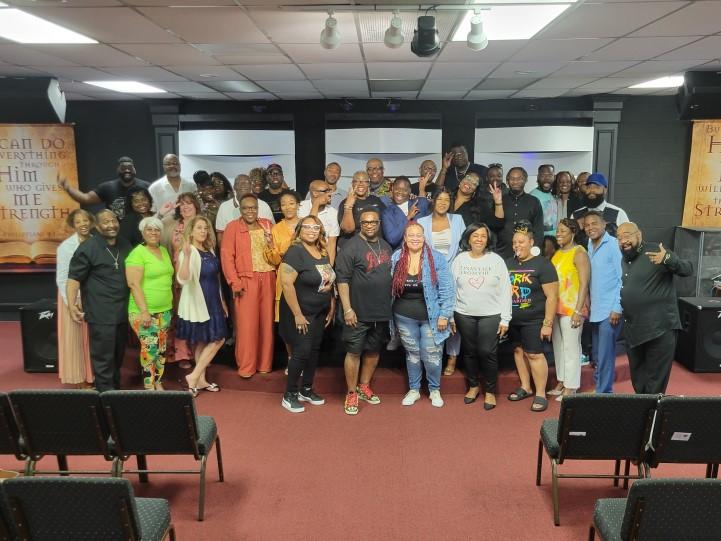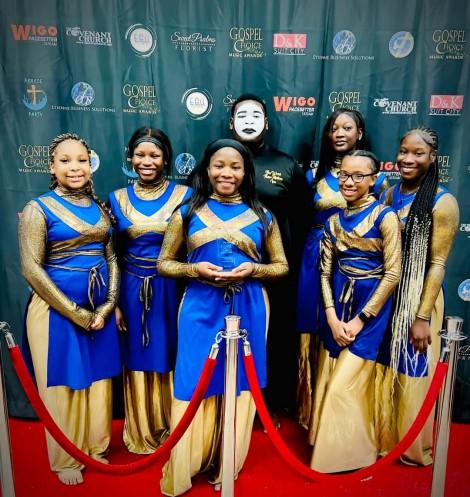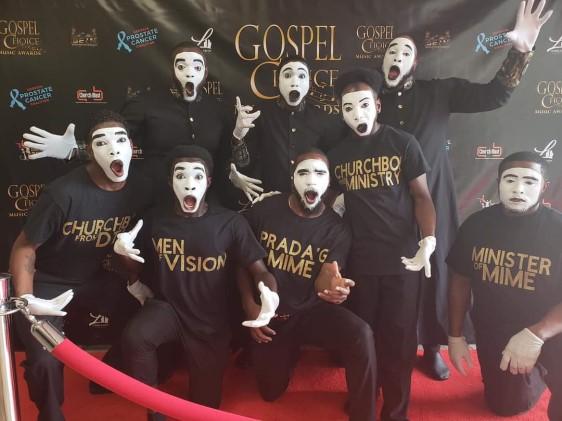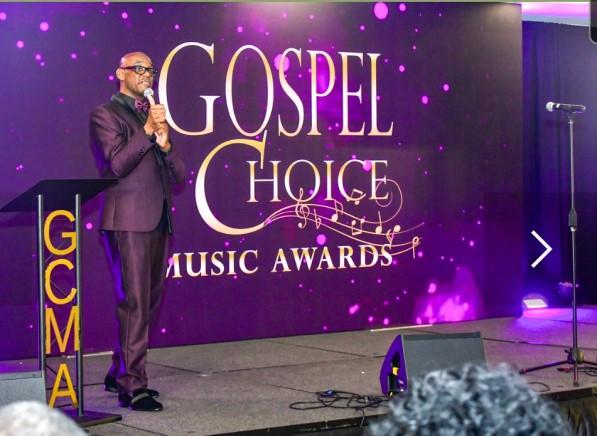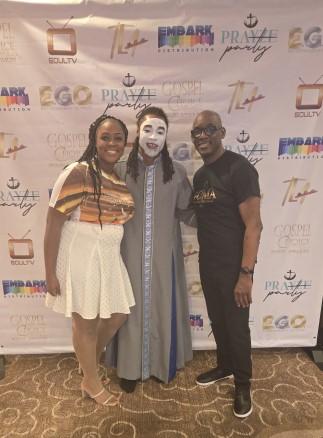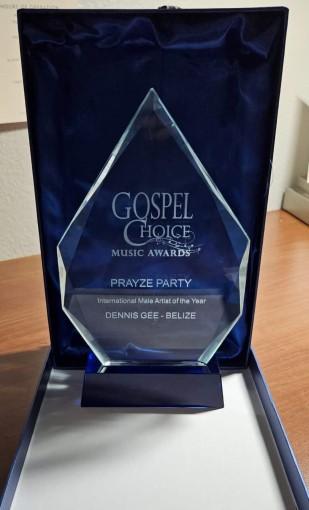

Therearesomanyfrequentlyaskedquestionswhenitcomestovoting.Whyshouldwe vote?Doesmyvotereallymatter?Isvotingnecessary?Myanswerissimplyyes!Voting isimperativetoshapeourfuture.Whenyouvoteyou’revotingforbutnotlimitedto thefollowing;President,U.S.Senators,U.S.Representatives,Governors,StateSenators, StateRepresentatives,CountyExecutives,CountyCouncilmen/women,Judges, Mayor’s,CityCouncilmen/woman,Boardofeducationmembers,Sheriff’sandDistrict/ StateAttorneys.Eachofthesepositionsdirectlyaffectyourlifeinmorewaysthan one.

Yourvotemattersbecauseitallowsyoutotakepartinthepoliticalprocessandshapeourcommunities.Itis throughthismediumweholdourelectedofficialsaccountableandletthemknowwherewestandonissues. Votinghelpsusgetourschoolsfundedaswellasourroadsbuilt.Votingallowsyoutovocalizewhatreallymatterstoyou.Itisimportantbecauseitallowsustochoosewhatwedeemessentialandimportantinourcommunities.
Onafederallevel,whenvoting,youarechoosingthepersonwhoselectsthenextsupremecourtjustices.Those appointmentslastalifetime.TherehavebeenimportantcasesheardbeforethesupremecourtlikeRowev WadeandBrownvBoardofEducation.Thosetworulingsgavewomentherighttochooseanddeclaredsegregationunconstitutional.YouarevotingforthepersonwhoappointstheSecretaryofEducation,AttorneyGeneral andSecretaryofState.Yourvoteaffectswhoprotectsorharmsourenvironment,housingrights,criminaljustice reform,policereform,education,foreignpolicy,immigrationpolicyandsensiblegunlawstonameafew.So muchisonthelineeveryelection.
HereinMaryland,whereIserveasaCouncilPresidentfortheCityofLaurel,circuitcourtjudgesserveatermof 15years.Yougettochoosewhatjudgesitsonthatbench.15yearsisalongtimetoallowapersonwhomyoudo notsharethesamevalueswithdeterminethefateofyourpeers.Sittingoutonelectionsallowsotherstomake decisionsforyou.
Electedofficialsmakedecisionsonschools,costofliving,healthcare,whattimeyourcity/towncloses,whatkind ofbusinessescometoyourcommunityandmuchmore.Onevotecanmakeallthedifference.Therearecasesin somestateswhereacandidatewonanelectionbyasinglevote.Whatlawsthefederalgovernmentwillnotcreateorchange,thestateandlocallevelcan.Donotallowyourelectedofficialstotakeyourtaxpayingdollarsand servetheirowninterestinoffice.Theyworkforyou!Wemustpayattentiontoallelections.Ourpowerisinour localandstateelections.Onastateandlocalleveliswherewecanquicklymakechange.Donotletanyonemake thedecisionforyou.Researchyourcandidatesandseewheretheystandondifferentpositions.Findoutwhatis importanttoyouandvote.Donotvotebypartybutbypolicy.Voteforthepersonthatsharesyoursamevalues.
Anotheraspectofthevotingprocessistheprimary.Somestateshaveopenprimarieswhileothersareclosed.I happentoliveinastatethathasclosedprimaries.Anopenprimarymeansthatanyonewhoisregisteredcan voteintherepublicanordemocraticracenomatterpartyaffiliation.Closedprimarymeansthatonlythoseregisteredwiththepartycanvote.Theprimaryiswheretheparty’selectwhorepresentstheminthegeneralelectionagainsttheotherparty.Ifyourstateispredominantlyrepublicanordemocratyouroptionsareintheprimary.Mostlikelythedominantpartywillwinsoyoumustchooseintheprimarywhoyouwanttoholdoffice. Beinganindependentonlyallowsyoutovoteinthegeneralelectionunlessyouareinanopenprimarystate.So manypeoplemakethemistakeonskippingtheprimaryandcomingouttothegeneralelection,onlytobeupset withthechoicestheyareleftwith.Voteeveryelection!Whenthisisdone,thevoicesofthemajoritywillbe heard.Whenthemajoritydecidesnottovote,theminoritydecideshoweveryonelives.Standupforthosewho cannotvote.Standupforourchildren.Standupforourfuturebyvotingthisandeveryelection!
One said, “I’m turkey and dressing. I’m the real Thanksgiving.” Another said, “I’m sweet potato casserole and green bean casserole. I’m the real Thanksgiving.” Still another said, “I’m pumpkin pie and pecan pie. I’m the real Thanksgiving.” One on the left said, “I’m cornbread dressing and gravy. I’m the real Thanksgiving.” And, one on the right said, “No, no. I’m chitterlings (down home caviar) and cole slaw. I’m the real Thanksgiving.” The last claim came from in the sky saying, “I’m a Macy’s Parade balloon. I’m the real Thanksgiving.”
I am confused all of these sound legit. But, I need to know for myself and for the sake of all who will read this article. WHAT IS THE REAL THANKSGIVING?
To know anything about something, it is good to look at its beginning. The first Thanksgiving was a harvest celebration held by the pilgrims of Plymouth colony in the 17th century. Only two firsthand accounts were ever written about Thanksgiving. One account was written in Williams Bradford’s journal titled, “Of Plymouth Plantation.” The other publication was written by Edward Winslow titled, “Mourt’ s Relations.”
The pilgrims held the first Thanksgiving feast to celebrate the successful fall harvest. Celebrating a fall harvest was an English tradition at that time, and the pilgrims had a lot to celebrate. Only 53 of the 102 colonists survived the journey from England to the New World (what is now North America) on a long journey on the Mayflower. Disease and starvation claimed the lives of the others. These pilgrims survived the first winter with the help of the Wampanoag tribe, who helped them to have a sustained food supply.
Although we currently celebrate Thanksgiving as the fourth Thursday in November, the first Thanksgiving happened sometime between September and November of 1621. Attending the first Thanksgiving feast were 90 Wampanoag Indians and the pilgrims. History tells us that the Indians were not initially invited to the feast. Although we think of Thanksgiving as a wonderful time, to the Wampanoas Indians it ended up as a prelude to bloodshed and loss of life.
However, to stick to the positive things about Thanksgiving. Thanksgiving has become a time for family, friends and people to come together and say, “Thank you.” Thanks to God for life, thanks to God for the gift of family and friends, and thanks to our family and friends for being who they are in our lives.
As we approach what we call the Holiday Season, let’s put aside some things that, in the grand scheme of things, don’t really matter. Let’s set aside, turkey and dressing, sweet potato casserole, green bean casserole, pumpkin and pecan pie, cornbread dressing with gravy, chitterlings and cole slaw, and the Macy’ s Parade balloons, and think about what really matters. The thing that really matters is that we are still alive, and have family and friends to share with. So, even if we cannot afford the “Thanksgiving usual” meal with all the trimmings. We should all just thank God for one more day. So, the real Thanksgiving will stand up and say, “God, I thank you.” Happy Holiday.



How are You Leading
Hey BlueMile Family. It’s time for another Blue Note discussion. Recently, there have been concerns about leadership in our industry. To address these, maybe we should start by looking at ourselves. There’s an old saying, “Do as I say, not as I do!” But clearly, this approach isn’t effective. BlueMile is here to shed some light on the subject.
Let’s turn to the Bible, where we find a message that contradicts this outdated saying. In Titus 2:7-8, it says, “In everything set them an example by doing what is good. In your teachings, show integrity, seriousness, and soundness of speech that cannot be condemned.” In essence, we are called to Lead by Example. Being an artist in the music industry is rewarding, allowing us to express our faith through music. Yet as the accolades and compliments come, they can sometimes foster a false sense of entitlement and superiority. Please hear us clearly! Solo artists, choirs, and musicians all of us play an essential role in enhancing the worship experience through uplifting and skillful music. In whatever capacity you serve, remember that a polished performance requires dedication and preparation. Don’t forget to add humility to the mix and focus on doing your part.
Here are some basic etiquette tips to shape your artistry and elevate your ministry.
1. Practice at Home: Spend time practicing on your own to become familiar with your set. Reviewing lyrics and listening to the music will help you come prepared for rehearsals.
2. Arrive on Time: Punctuality is as important as rehearsing. Being late, even by a few minutes, can disrupt what’s already in progress. A wise saying goes, “Early is on time, on time is late, and late is unacceptable.” Arriving on time ensures everyone can start focused and ready.
3. Check Your Attitude: Your attitude greatly affects your entire team and performance. A positive outlook can uplift everyone involved, while a negative attitude can lower morale. Remember, “Don’t let ego replace hard work and teamwork.”
4. Respect Others: Show appreciation for each person’s contribution. A simple “Thank you” goes a long way in building morale and strengthening relationships. Express your needs respectfully and be open to feedback. This will make everyone feel valued collaborative teams are always a plus!
5. Be Attentive and Accessible to Your Audience: Whenever possible, connect with your audience. A simple “Thank you” or a brief conversation can leave a lasting impression. Walk in grace, and build a positive reputation with each encounter.
Embracing these guidelines will enhance your artistry, professionalism, and relationships, helping you stand out not just for your talent but also for the respect and grace you show to everyone involved in your musical journey. This is how you lead!
Blue Nugget: Lead by Example: “Follow me as I follow Christ!”
To book consulting services with BlueMile Music Consultants, LLC check out our website, www.bluemilemusic.com
Catch the talk show every other Tuesday night @8pm on Facebook LIVE, YouTube @bluemilemusic and on the OnPoint Channel TV Network. Follow us on all social media outlets.

The Kenyan gospel industry has seen a huge change over the years with regards to the class and styles of music that fall under the gospel umbrella. At first, customary gospel music joined by ensembles and psalms overwhelmed the scene, and craftsmen zeroed in on conveying messages that were in accordance with Christian precept. Notwithstanding, with the passage of new ages, the style and sound of gospel music started to change, particularly with the coming of contemporary gospel.
Spiritually uplifting songs and hymns led by choirs were the hallmarks of early gospel music. Leading practitioners of this genre included Mary Atieno whose music was primarily centered around praise and worship. The songs were perfect for church services and private devotion because they were frequently meditative, slow, and full of spiritual lessons. Most churches were built around their choirs, whose potent harmonies united people in prayer. Popular KBC producer Karanja Kimwere created the Sing and Shine program, which subsequently evolved into the proper outlet for brand-new gospel music. Occasionally, the Friends ChurchKariokor Choir, led by Dr. Arthur Mudogo Kemoli, would perform gospel hits like Wamuvamba and Mbinguni Kuna on the program. During their performances, audiences were enthralled by their contagious rhythms, swaying figures, excellent voices, matching kitenges, and sheer joy of singing.

There was a change in the Kenyan gospel scene by the late 1990s and early 2000s. With artists such as Gloria Muliro, Ringtone and Daddy Owen showcasing a fresh, urban, and upbeat brand of gospel music. Modern gospel music integrated genres such as hip hop, R&B, and Afrobeat while blending Christian themes with contemporary beats. This shift was driven by the need to engage younger audiences, who were drawn to more lively and captivating musical genres. Although some moderate church pioneers criticized this trend, it also spurred remarkable growth as more children began to integrate gospel music into their lives and childhood teachings.
With the rise of gospel rap and hip-hop, as well as other genres incorporating afrobeat, the Kenyan gospel industry was later recognized to have undergone significant improvement .With their distinctive rap sounds, Eko Dyda and Juliani dominated this era, using music as a conduit to reach the young, trusting, and reclaiming the honest. Gospel rap revolutionized the music industry by addressing modern-day social issues such as drug abuse, unemployment, and misconduct, all while maintaining a Christian perspective. This approach proved to be highly beneficial in connecting with the younger and younger demographic. This kind targeted a generation of adults who were listening to mainstream hip-hop to show that gospel music could be both interesting and incredibly uplifting.

Recently, there has been a growing trend of gospel artists incorporating elements of popular music into their compositions. It's undeniable that this has increased the longevity of the genre, even though it has sparked debates about whether or not some songs truly count as gospel. This debate has centered on artists like Bahati and Willy Paul, which has even forced them to switch from gospel to mainstream in an effort to avoid being judged too harshly. The change from earlier strict gospel music to a combination of gospel and secular music drew both applause and criticism. Fans’ support was on the premise that such a mix contributed to the spreading of the gospel to a larger audience while the critics were concerned with the dilution of faith’s message by such irony whereby even the artists got ‘diluted’ and ended up switching to secular music. Nevertheless, this trend sums up, depicting the Kenyan gospel music industry and its fluid and dynamic ability to change through cultural change
With such a rich history, the Kenyan Gospel Industry has been marked by the contributions of legendary artists, pastors, DJs and Media stations over all these years. The notable pioneer figures in the industry include Apostle Kyande, Mary Otieno, Jemimah Thiong’o and Pastor Pius Muiru. These pioneers, along with many others did not only spread the gospel but also inspired and shaped it in so many ways.
Pastors played a crucial role in the early Kenyan gospel industry by being both spiritual leaders and key influencers of gospel music. Previously, the industry was big and influential to the society to an extent that the societal norms were greatly influenced by the church leadership, in fact, the gospel fraternity was exclusively referred to as ‘Ministry’ and not ‘Industry’ as it is widely known today.
Some of the ways that contributed to the growth of the Kenya’s Gospel Industry:
Spiritual Guidance and Mentorship: As the custodian of the Ministry, they mentored and spiritually guided gospel artists, helping them to stay grounded in their faith and ensuring that their music didn’t go against the Christian doctrines and values. They did this by demonstrating the ideal Christian life on and off stage, acting as role models to many.
Provision of Platform for talent: Back in the days, the Kenyan audience hadn’t been introduced to streaming platforms like it is today. Even so, there were a few TV and radio channels providing a platform for the gospel musicians to showcase their talents. Worse still, Kenya, just like other African countries was not technologically developed as it is today. Therefore, gospel artists were left with fewer platforms to showcase their talents. It’s during that period that the churches served as the primary platforms for gospel artistes to showcase their God-given talents. The men of cloth organized events, concerts, and church services where musicians could perform. This gave the artists the much-needed exposure thus building their fan base.
Moral and Ethical Standards: Pastors helped in maintaining moral and ethical standards within the Gospel Industry. They did this ensuring that the gospel music and content were in adherence to the Christian values and that the message in the music remained focused on faith and spirituality.

Youth Engagement: In the late 90s and early 2000s, a new breed of gospel music emerged. The new style of music was the contemporary. Even though the industry was rooted in traditional Christian music, contemporary music was rising and unsurprisingly, it was appealing to the youth. Pastors like Ambrose Nyang’ao organized events and incorporated contemporary gospel music, attracting youth to the church.
The Role of Media in the Growth of the Gospel Industry: As the scene of Kenyan gospel music continued to transform, media houses began contributing to its growth. Previosly, media was just a few television and radio stations and the scope of gospel music was narrow. However, years later, there has been a great transformation, presenting gospel artists with a golden opportunity to reach more people. The new millennium has brought gospel music closer to Kenyan households in ways not thought of through mainstream media shows such as Kubamba on Citizen TV, Crossover on NTV, and then through school visitations. Indeed, the songs were not just for entertainment but allowed artists to share testimonies and faith journeys as they tried to inspire their viewers. Since then, gospel music made it into the regular playlists of the top radio stations, where DJs like DJ Mo and DJ Sadic became household names playing Kenyan gospel hits every Sunday morning. Radio stations such as Hope FM, Truth FM, and Family Radio 316 dedicated special slots to gospel music. It is through these very airwaves that gospel artists were able to reach thousands of Kenyans who are eager to have faith-based inspiration. Mary Atieno, Emmy Kosgei, and Esther Wahome got big because of this airplay on the radio. Gospel events were publicized by these radio presenters acting like influencers and giving a platform for a newbie artist in the gospel industry.
Social Media and Streaming Platforms: The blossoming of social media and streaming platforms transformed the gospel industry in Kenya. What had previously posed a big problem for any artists, which is advertising their music to the masses, became even easier with the introduction of YouTube, Facebook, Instagram and other related platforms. Gospel singers also need not depend on television and radio to let themselves be heard anymore. They could post their songs wherever and especially on sites like YouTube where their songs were bound to be listened to by countless people across the globe. Mercy Masika, Guardian Angel, Size 8 and others have received millions of views to their music videos showing how very popular the music genre is and hence the importance of the digital music platforms. Boom play and Spotify streaming services have also encouraged consumption of Kenyan gospel music by many people within the different target groups.
Apart from both traditional media and social media that have demonstrated growth within the industry and within the target audience, they have also affected the industry and the target audiences in a number of ways:
Spiritual Upliftment: Kenyan gospel music is full of hope, faith and inspiration with Mercy Masika and Gloria Muliro on the forefront. Producing touching hit songs such as ‘Shusha nyavu’ which every younger generation seems to know.
Platform for Talent: Media has been the launching pad of Willy Paul, Bahati and Size 8 talent combining modern and spiritual themes blessing the congregation.
Community Outreach: Gospel artists, especially Size 8 and Bahati are also supporting charity and community initiatives (giving back to society) like the needy.

Industry Growth: The growth of Gospel music as a tent-pole in Kenya's large entertainment community, supported by events like the Groove Awards that strengthen both the talent pool and the youth demographic there.
Cultural Influence: Through Gospel Music, more youth are brought up with hope and encouragement to model after someone like Guardian Angel and John Okidi as opposed to others that may have toxic effects in terms of morality.
International fame :artists like Eunice Njeri and Mercy Masika have slowly come to international terms putting the Kenyan talent on a global map.
Unity through Collaboration: Gospel artists collaborate across cultures and genres, providing unity especially to regional links as demonstrated by the hit song “Mungu baba'
Positive Message: since the gospel enterprise is overt subject, it focuses on spreading love and addressing social issues.
Empowering Women: Feminine gospel artists like Janet Otieno, Sarah K, Emmy Kosgei and Kambua have emerged as powerful voices driven to encourage women to participate in music or embark on this kind of voyage.
Personal Stories: Songs are also a lot about the artist and not just instrumental, thereby serving as an outreach channel for artists like Size 8 who share their personal life experiences or transformational journey by faith to inspire the masses.
The Kenyan gospel industry is in a season that comes with both challenges and opportunities to grow. Although still haunted by the effect of prosperity gospel and a secular music shift, the emergence of new talent provides hope that a return to ministry, faith, and community will help right the ship. As artists return to uplifting communities and spreading the Gospel, they’ll see how impactful their music really is. Artists must engage in advocacy for change and help redesign the typical narrative of gospel artists in Kenya. Taking full advantage of technology adoption like virtual concerts and online streaming, offers new opportunities to reach global audiences as well deepen ties with fans who can bond over spiritual connections. The Kenyan gospel industry from its origin as a humble church choir to the powerful social media-oriented force in music. Motivation through messages of hope and faith continue to lead us to a bright tomorrow.

Pastor Jackie’s life embodies a remarkable blend of community service, musical talent, and unwavering commitment to ministry. Raised in Clarksville, Tennessee, within a family devoted to helping others, she has long embraced a path of service. As the youngest daughter of Pastor Jerry and Lady Naomi Jerkins, Pastor Jackie’s dedication is evident through her involvement with numerous organizations, including Big Brothers/Big Sisters, the East DeKalb Boys & Girls Club, The Salvation Army, Junior Achievement, United Way, Atlanta’s Shades of Pink, and the Atlanta Heart Walk Foundation.
Her academic and professional achievements further highlight her diverse abilities and dedication. Pastor Jackie earned a B.S. in Journalism and Mass Communications from Austin Peay State University, where she also developed her skills as a radio journalist-announcer-host with WAPU, the university's campus radio station.

Pastor Jackie continues her 26-year employment relationship with AT&T Services, Inc. as a team member in the corporation’s Field Operations Division as Lead Communications Consultant providing support in Senior/Executive Administration, Event Design, and Diversity and Inclusion Activities.
In the music industry, Pastor Jackie’s contributions are noteworthy to include Michael W. Smith’s 1992 “Color Blind” album (https://youtu.be/p_-BwQhDNLg?si=JeTxAUzxquTjlTfq), the Music City Mass Choir and Friends’ 1993 Project “He Lift Me” (https://youtu.be/7tBhEUP_5R0? si=99YZ2ZKyvVQF hvW), Albertina Walker’s 1996 singles “If I Perish” and “I’m Still Here"(https:// _DlpM?si=tfvR83cquKOzx5Gb), and the Jerkins Twins’ 2005 CD Release “I Am Here For You.” Her extensive background in hymns, spirituals, and contemporary gospel reflects her deep passion for worship and musical expression. Her multifaceted role at Black Entertainment Television’s (BET) Bobby Jones Gospel Show underscored her talents in music and media, where she excelled as a singer, segment announcer, production assistant, and content curator.

Pastor Jackie is a world explorer and has yet to meet a stranger. She has participated in purpose-driven treks, serving the impoverished and local non-profits while visiting some of the world’s most remote and iconic locations (eg. 2009 Liberia, West Africa Medical Missions, 2018 Jerusalem, Israel Holy Land Tour).
Pastor Jackie’s journey is a testament to a life dedicated to service, music, and ministry, making a profound impact on her community and beyond. She exemplifies the epitome of selflessness, generosity, and love. She has a unique way of making everyone around her feel seen, valued and cared for
whether its through thoughtful words or small acts of kindness. Her presence brings comfort and joy.
Today, Pastor Jackie serves alongside her husband, Bishop Darrius Key, at the Cathedral of Grace Church in Decatur, Georgia, where she oversees the Executive and Administrative Ministries. She also balances her professional life with being a devoted champion of their three children Daurice, Myla, and Malik. She is also the proud grandmother to Alias who proudly calls her his "Mee-Ma".



Recording Artist, Songwriter, Radio Personality, Gospel Industry Leader
Lady Voncile Belcher continues to bring her refreshing music and industry knowledge to the forefront of the Gospel Music Industry. Bridging the Traditional Gospel Music genre with her industry expertise and over 40 years and decades of music; Lady Voncile has proven over and over- again, her love for an industry that she serves ever so faithful.
Her background of humble beginnings starts where she was raised in the small town of Ozark, Alabama with a strong is religious background; her father being a noted Minister while her mother was a well-respected Missionary; both gave Voncile deep Gospel roots for her yearning to sing at a young age. She was Introduced to the Gospel Music Workshop of America (GMWA) Alabama Chapter which became a catalyst for her first recording; in 1980 with the Harris Temple Church of God in Christ, under the direction of Keith Ellison, she sang lead vocals on the song “Do You Know Who Jesus Is”.
Continuing her music career, she relocated to Atlanta, Georgia in 1985 and released her independent album “Be Strong” in 1987. While working in the studio one day she was introduced to Rev. Milton Biggham, then the President of Savoy Records, who gave her a small piece of paper with three lines that said “Look Where He Brought Me From “. With those three lines, History was made as she sang lead vocals on the track that appeared on the Georgia Mass Choir’s 1988 album ‘We’ve Got the Victory’ which the song became an instant hit on the Gospel Billboard Charts and is still sung across the country in churches even today.
Voncile also sang lead on the Georgia Mass Choir song ‘Hold To God’s Unchanging Hand’ written by Gospel-Great James Bignon. Holding Awards and Recognition for her Music and her Gospel Industry Leadership qualities; This Multi-Award-Winning Artist and Radio Show Host has served GMWA (Gospel Music Workshop of America) as Summit Leader, the Georgia Alliance Leader and the Georgia State Representative for “The Movement”.
Some of her other Music Awards and accomplishments include her memorable Lead Vocals on the Billboard Charted 1988 recording with the Georgia Mass Choir’s song “Look Where He Brought Me From”, additionally; the Team Unity Leadership Award, Midday Praise Radio Leadership Award, SCM Awards, The Mahalia Jackson Award, Humanitarian Impact Award, Several Rhythm Of Gospel Awards: Traditional Artist Award for her Christmas Single, Traditional Female Vocalist of the year, Gospel Radio Show of the year, 2016 Rhythm of Gospel Queen, the Queen Forever Club and Most Photogenic Award and is a twice winner of the S&M Awards as the Female Artist Song of the year for the single "Alright", and many many more notable awards.
Over the years Lady Voncile has released several albums under her own record label (Glory Bound Records) which consist of her original written songs. Her 2019 album release entitled “From Then To Now” includes some of her greatest recorded songs; in 2021 she released another volume album “From Then To Now ~ Volume Two”, in 2022 a single release of “Don’t Leave Me Jesus, all while commemorating her music career of over 40 years as a gospel recording artist, songwriter, radio personality and industry influencer.
Lady Voncile has a timeless way of delivering fresh new sounds displayed with her fall of 2024 single release “Things Are Gonna Get Better~Remix” available on all major digital platforms.
Contact Lady Voncile
Phone: (678) 516-1644
Email: singvoncile@yahoo.com
Follow Lady Voncile on Social Media: Facebook: Voncile Belcher
Twitter & IG: @LadyVon777


A music icon and legend, is celebrated for his groundbreaking contributions to the GospelSoul genre. Here are some of his notable achievements:
Accomplishments: Originator and creator of GospelSoul, author and songwriter of numerous chart-topping songs
Impact: Pioneered GospelSoul, inspiring generations of artists, bridged gaps between gospel, soul, and inspirational music, collaborated with renowned artists across genres, mentored emerging talent in the music industry, and leaves a legacy of uplifting, soul-stirring music
Tributes: The King of GospelSoul, a trailblazer in GospelSoul music, a master songwriter and performer, a true music legend, and an icon whose legacy will endure
Influence: Inspired a new wave of GospelSoul artists, crossed cultural boundaries, touching hearts globally, and left an indelible mark on the music industry.


William P. Campbell's remarkable career and legacy continue to inspire and uplift audiences worldwide. Some of his achievements showing his global impact include releasing the chart-topping albums “COVERED” and “I AM” and the EP “SOUNDS OF SOUL PT 1,” which have reached 83 countries. He is the recipient of numerous awards, including several awards from the President Joseph Biden and the White House of the USA Of The United States Of America. These awards include The President’s Volunteer Service Award, The President’s Silver Award, and two Presidential Lifetime Achievement Awards. Mr. Campbell has also received awards from the United States Congress, House Of Representatives, Senate & the state of Texas.
Music & Entertainment Awards & Nominations:
– A Proclamation of Appreciation from the City Council of Brazoria County
– Honored with a National Day proclaimed by Mayor Turner in Houston, Texas, as “The King of Gospel Soul William P Campbell Day” on October 29th
– A massive billboard in Times Square, New York, proudly declares him as “The King of Gospel Soul”
William P. Campbell, the "Originator and Creator of GospelSoul," defines is as: "GospelSoul is the culmination of gospel music, soul music, and inspirational music, all wrapped into one. It's a genre that takes the best of gospel's spiritual message, soul's emotional intensity, and inspirational music's uplifting power, blending them into a unique sound that touches hearts and souls." Key elements of GospelSoul, as per William P. Campbell, include: spiritual lyrics and themes, soulful, emotive vocals, inspirational and uplifting messages, a blend of traditional gospel, soul, R&B, and contemporary styles, and music that heals, comforts, and empowers listeners. GospelSoul aims to: spread love, hope, and faith, bridge cultural and generational divides, create a sense of community and unity, and provide solace and strength through music. His vision for GospelSoul is to inspire, uplift, and bring people together through the power of music.



